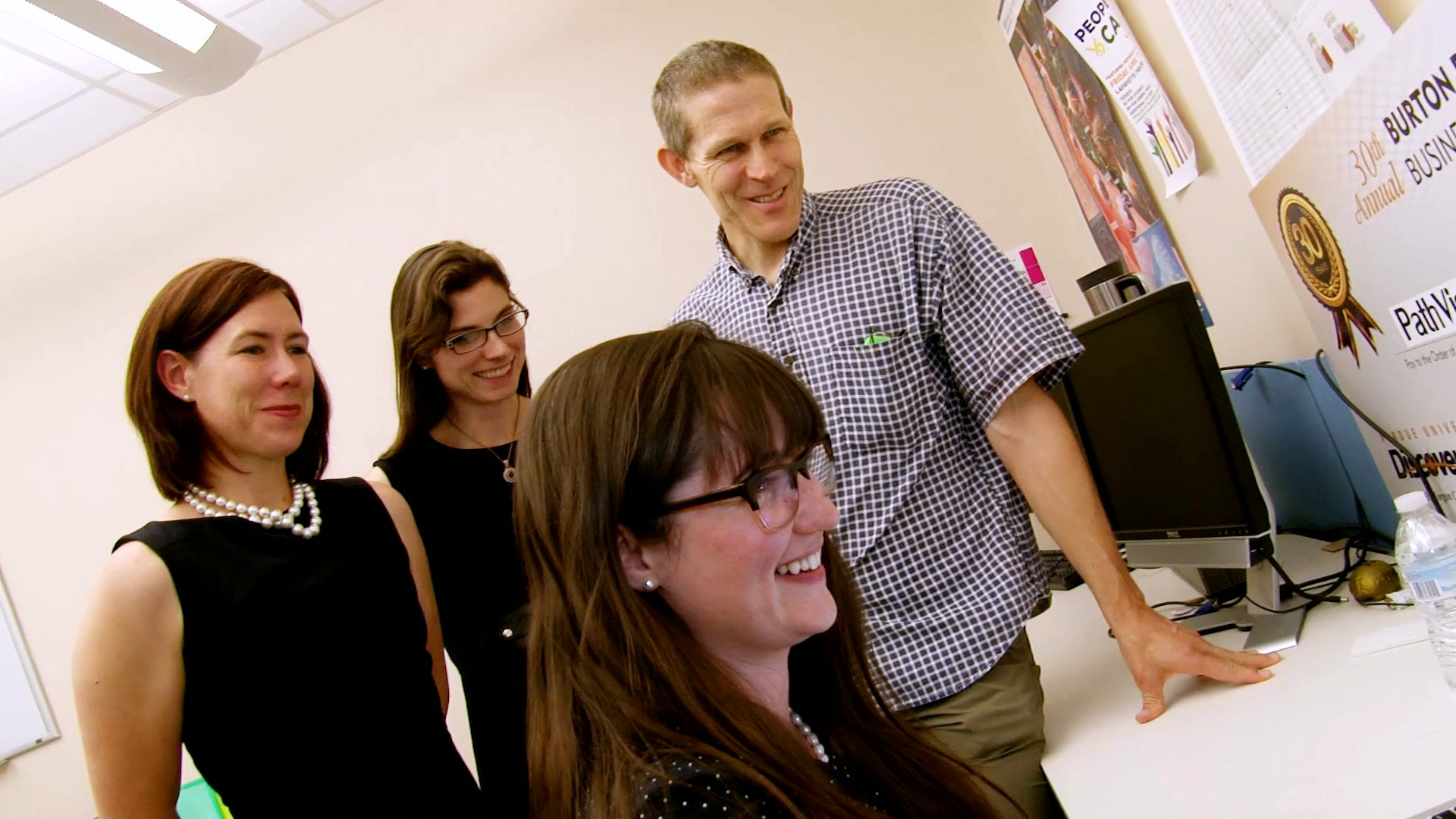Start-up using Purdue-patented disease detection platform receives NSF I-Corps grant

The team founded the start-up OmniVis, along with researchers from Purdue’s School of Mechanical Engineering. OmniVis was chosen for the seven-week NSF I-Corps program because it has been identified by NSF as having immediate potential for broader applicability and impact in the commercial world.
“I-Corps gives us the opportunity to travel and conduct market research to determine the value of our disease-detection platform to potential users.” said Tamara Kinzer-Ursem, co-founder of OmniVis and assistant professor in the Weldon School of Biomedical Engineering. She is participating in the program along with Katherine Clayton, OmniVis co-founder and post-doctoral scholar in the School of Mechanical Engineering.
The I-Corps Curriculum provides real-world, hands-on, immersive learning about what it takes to successfully transfer knowledge gained from an NSF-funded research project into a commercial product or process that benefits society.
“So far we have conducted over 70 interviews with potential customers and implementing partners in the global health space,” said Kinzer-Ursem, the principle investigator on the project. “This experience is allowing us to identify the needs of potential customers, map out the competitive landscape, and better define our value propositions within that landscape,”
The experience has been particularly valuable for Clayton, the entrepreneurial lead on the project, as she looks to commercialize the disease detection platform.
“It’s been an invaluable experience to speak to others who have been out in the field actually working with patients or conducting field trials,” said Clayton. “You can only gain so much knowledge from reading papers or being in the lab. Getting out of the lab and talking to people really opened up our eyes to the needs and challenges in infectious disease detection.”
Tim Peoples, Managing Director of the Purdue Foundry, is the team mentor.
The outcomes of the I-Corps Teams project will be threefold: 1) a clear go /or no go decision regarding viability of the product, 2) should the decision be to move the effort forward, a transition plan for the project to move forward, and 3) a definition of a compelling technology demonstration for potential partners.
Source: Tamara Kinzer-Ursem, tursem@purdue.edu
NSF Innovation Corps (I-Corps™) is a National Science Foundation (NSF) program, delivered in partnership with over 70 U.S. universities, including Purdue. The objective of the program is to help university researchers develop a path to commercialization for their discoveries. The National program provides I-Corps teams (a PI, PhD/Postdoc, and Industry Mentor) with travel funding and instructional support from experienced entrepreneurs and investors to meet with over 100 potential customers and other stakeholders to test, refine, and validate their hypothesized business model.
